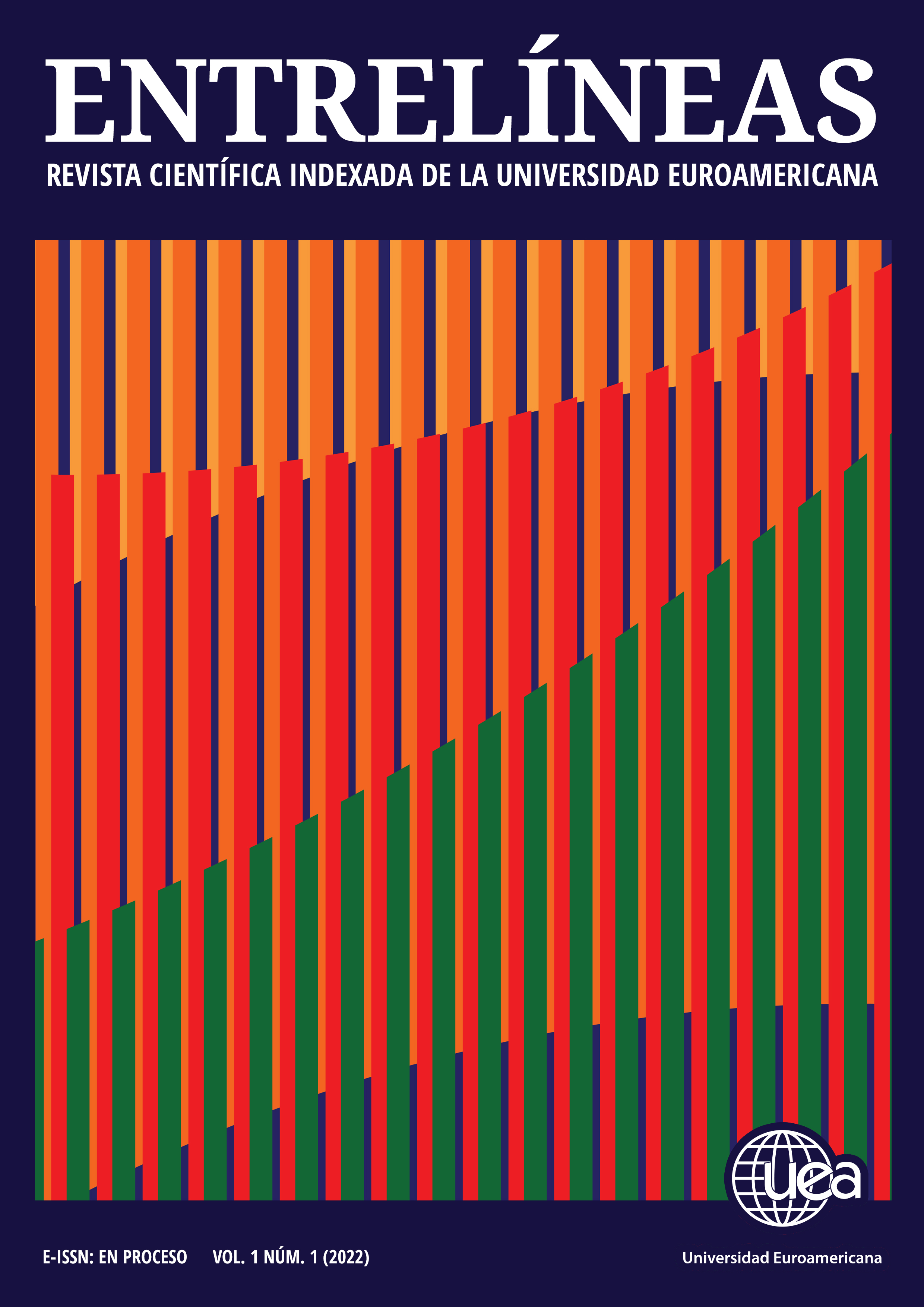Pedagogical accompaniment from the vision of school actors in precovid: learning necessary for times of pandemic
DOI:
https://doi.org/10.56368/Entrelineas114Keywords:
Pedagogical accompaniment, reflective practice, teacher training, precovid, covid pandemicAbstract
The research is based on the interest to investigate what are the conceptions, meanings and principles that base the pedagogical accompaniment in the teacher-student-family interaction. For this, key informants from three school institutions in Caracas were selected. Interviews and observations were conducted. The epistemological approach is interpretive phenomenological supported by the ladder of inference as a heuristic instrument. The research development allowed constructing propositions and theoretical-practical implications of the pedagogical accompaniment from a vision shared by the actors as well as the ability to observe themselves, undertake a critical dialogue and question themselves about their thoughts and actions. The conceptions expressed by the informants allowed the construction of eight categories: reflective training, pedagogical mediator, communication, interaction with freedom, familiarity, teamwork, coexistence and human dignity with their respective subcategories. In one of the propositions, it is stated: "reflective dialogue generates trust and the search for solutions together." In summary, the proposals made have a theoretical-practical potential for teacher professional training and, especially, in their professional action in times of a COVID-19 pandemic.
Downloads
References
Argyris, C. y Schön D. (1978). Organizational learning: A theory of Action Perspective. Addison– Wesley Publishing, Co.
Bordieu, P. (1997). Razones prácticas sobre la teoría de la acción. Anagrama.
Gadamer, H. (1999). Verdad y método. Sígueme.
Galíndez de P., I. (2019). El acompañamiento pedagógico desde una mirada compartida con los autores educativos. Tesis Doctoral. UNESR.
Galíndez de P., I. y Meza Chávez, M. (2022). Reinterpretando los resultados de una investigación sobre acompañamiento pedagógica en escuelas. Unesr. Mimeografiado.
Habermas, J. (2003). Acción Comunicativa y Razón sin Trascendencia. Paidós.
La Comisión Económica para América Latina y la Oficina Regional de educación para América Latina y el Caribe de la Organización de las Naciones Unidas para la Educación, la Ciencia y la Cultura (2020). La educación en tiempos de pandemia. CEPAL Y OREALC/UNESCO. https://www.cepal.org/es/publicaciones/45904-la-educacion-tiempos-la-pandemia-covid-19.
Ley orgánica de educación de Venezuela (2009). Asamblea Nacional. Gaceta Oficial Extraordinario No. 5.929.
Maturana. R., H. (1995). Emociones y lenguaje en educación y política. Dolmen Ediciones.
Meza, M. (2009). La Dirección Escolar y la Descentralización de la Educación en Tesis doctoral. UCV.
Pérez Esclarín, A. (2015). La Educación Popular y su Pedagogía. Colección Programa Internacional de Formación de Educadores Populares. Federación Internacional de Fe y Alegría.
Schön, D. (2002). El profesional reflexivo. Cómo piensan los profesionales cuando actúan. Paidós.
Schütz, A. (2003). El Problema de la Realidad Social. Escritos I (éd. Segunda). (C. Maurice Natanson, Éd., & N. Míguez, Trad.) Amorrortu Editores,
Soto, M.C. (2011). El Acompañamiento Pedagógico en Fe y Alegría: Un Camino para la formación y la transformación. Centro de Formación e Investigación Padre Joaquín. Colección Procesos Educativos Nº 28.
UNESCO (2020). El organismo internacional comparte recomendaciones para que la educación no se detenga por el COVID-19 y también lanza la iniciativa Coalición Mundial para la Educación. https://www.educaweb.com/noticia/2020/04/01/propuestas-unesco-garantizar-educacion-online-pandemia-19132/
Universidad Nacional Experimental Simón Rodríguez, Unesr (2018). Registros de las reflexiones de la línea de investigación “Educación, Democracia y Ciudadanía”. Unesr. Mimeografiado.
Vygotsky, L. S. (1979). El Desarrollo de los Procesos Psicológicos Superiores. Crítica.
Downloads
Published
Issue
Section
License

This work is licensed under a Creative Commons Attribution-NonCommercial 4.0 International License.
You are free to:
- Share — copy and redistribute the material in any medium or format
- Adapt — remix, transform, and build upon the material
- The licensor cannot revoke these freedoms as long as you follow the license terms.
Under the following terms:
- Attribution — You must give appropriate credit , provide a link to the license, and indicate if changes were made . You may do so in any reasonable manner, but not in any way that suggests the licensor endorses you or your use.
- NonCommercial — You may not use the material for commercial purposes .
- No additional restrictions — You may not apply legal terms or technological measures that legally restrict others from doing anything the license permits.










